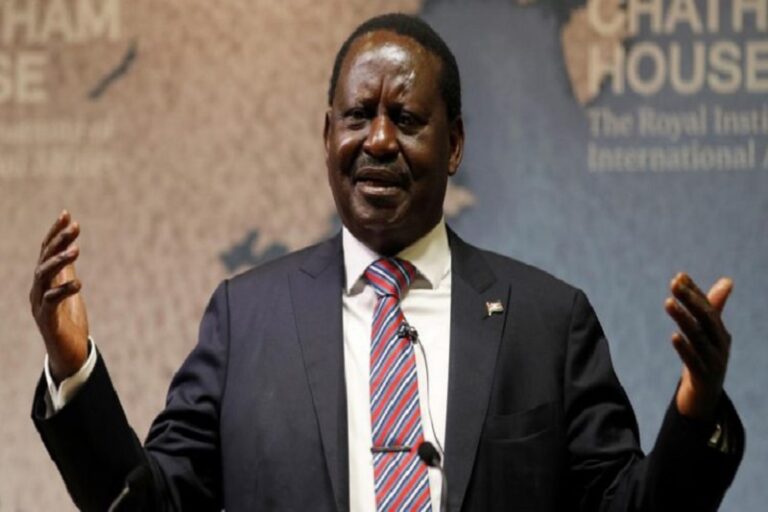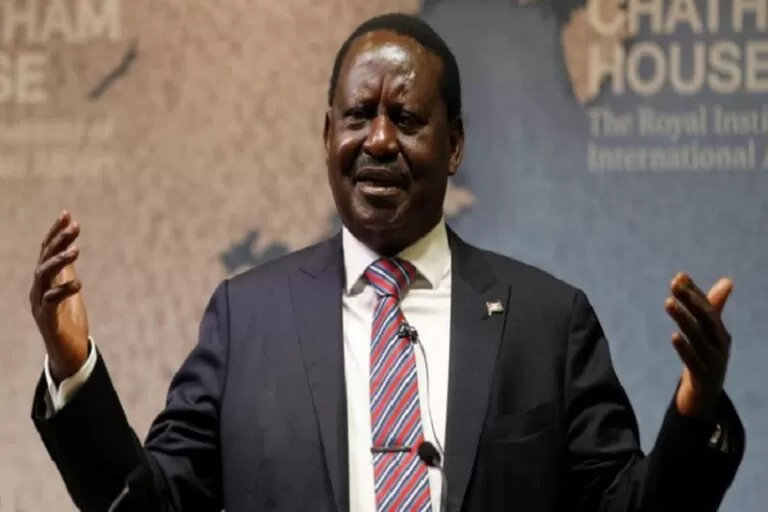

raila odinga of kenya stops the anti government demonstrations
Raila Odinga, the leader of the opposition in Kenya, has called off anti-government demonstrations that were scheduled to take place on Monday. In response to a request from President William Ruto, he said that he was ready to talk about things. In the last two weeks, there have been three marches against rising costs of living and accusations of voter fraud in the election from the year before. All of them have been plagued by violence, which has resulted in the looting and destruction of some businesses as well as the deaths of at least three people.
In response to Ruto’s suggestion that they set up a bipartisan parliamentary committee to deal with concerns about the election process, Odinga said late Sunday night that he would not be holding the fourth protest planned for Monday. The leader of the opposition, who has questioned Deputy President William Ruto’s chances of winning the 2022 election, has said that he sees the president’s announcement as an olive branch and a “positive development.” We will not be holding any demonstrations on Monday, April 3, 2023. This decision is effective immediately. “However, in doing so, we want to emphasize that the right to assemble, to demonstrate, to petition, and to speak are ironclad as provided for in our constitution,” Odinga said at a press conference in the evening.
On the other hand, he said that his party “reserves the right to call for demonstrations if this process doesn’t work.” The opposition has been pushing for reforms to the electoral commission, including stronger guarantees that the president can’t pack the chamber with supporters. The opposition has been pressing for these reforms for some time now. According to what Odinga had to say about the matter, “We agree that a balanced parliamentary process co-chaired by both sides and backed by experts from outside should proceed.” In the event that there was “no meaningful engagement or response” from Ruto, he predicted that the demonstrations would start up again in one week.
Odinga also said that the opposition would talk to the government about the high cost of living, which was a big reason why so many people were protesting. He stated that during times such as these, there should be a return to subsidies “so that we can bring down the cost of living.” The government run by Ruto has taken away the subsidies it gave for gasoline, corn, and electricity. Religious groups had asked the government and the opposition to give dialogue a chance so that the country wouldn’t fall into post-election violence like what happened in 2007 and killed more than 1,200 people.
Ruto had earlier in the evening delivered a message to the entire country, in which he pleaded with Odinga to work through parliament rather than the streets. “I urge my brother Raila Odinga and the opposition to call off the demonstrations and to give this bipartisan approach a chance for us to take the country forward,” he said, while also imploring Kenyans to remain peaceful and law-abiding. But he ruled out working with his opposition in any way. Ruto warned that there would be “a lot of trouble” if compromising accountability and oversight was allowed to continue.
“Our position is that we want to engage our brothers and sisters on the other side on issues that are important to the people of Kenya… That way, the system of checks and balances remains intact,” they said.
Concern has been raised around the world because of the unrest in Kenya. Several foreign embassies, including those of the United States and the United Kingdom, have asked for calm. The African Union has also issued a call for a nonviolent resolution to the unrest that has resulted in the use of tear gas and water cannons by riot police against demonstrators, as well as the setting on fire of places of worship, properties, businesses, and automobiles.
The Kenya Media Sector Working Group says that since the start of the protests, there have been more than 20 attacks and other violations against journalists. According to the organization, state actors were responsible for a “significant proportion” of the attacks. Ruto said that journalists were not the intended targets of the violence but that some of them had been caught in the crossfire.
The U.S.-based driver training company Zutobi analyzed road safety worldwide and found South Africa stays last in driving danger since…
The Basketball Africa League (BAL) returns for its 2025 season with exciting changes and developments. Since 2019 the NBA-linked basketball…
The Somali president supports their military forces to eliminate the threats from Al-Shabaab, ISIS, and Al-Qaeda. The Somali National Army…
UAE President Sheikh Mohamed bin Zayed Al Nahyan held talks with President Faustin Archange Touadéra of the Central African Republic…
African football teams struggle intensely in the World Cup Qualification rounds to earn their place on the international football stage.…
The journey toward the 2026 FIFA World Cup is rapidly intensifying for all African teams, who now hold a historical…
This website uses cookies.